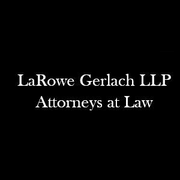
If you have reached the point where it seems you will never make headway in paying off your debt, you may be looking for alternative solutions. While filing bankruptcy is an effective way of providing debt relief, it is not as simple as you might think. Here is what you need to know about the process.
What to Expect When Filing for Bankruptcy
How much debt do I have to have to file?
The courts look at more than just the amount you owe, but your debts should equal half of your yearly salary or more. Also, you should be able to show that it would take you a minimum of five years to pay off your debts and that your debt is affecting your relationship, your physical health, your sleep schedule, and other aspects of daily life.
Should I file Chapter 7 or Chapter 13?
To file for Chapter 7, your attorney must be able to show that you can pass a means test. This involves comparing your monthly income for six months to your living expenses, debts, and taxes for the same period. If the means test shows that you have enough left over to pay toward your debts, you will not be permitted to file for Chapter 7. In that case, you will work out a repayment schedule with the court under a Chapter 13 filing.
Can I keep my home?
 Every state lists certain assets that you can keep by claiming them as exemptions, but the terms vary depending on whether you are filing Chapter 7 or 13. Typically, you can keep a home under real estate law, but this depends on the value of the house. If the equity you have in the home is more than the state’s exemption allows in a Chapter 7, the property may be sold to repay your unsecured debt. In a Chapter 13, you can keep your home, but you may be compelled to use your equity to pay off creditors.
Every state lists certain assets that you can keep by claiming them as exemptions, but the terms vary depending on whether you are filing Chapter 7 or 13. Typically, you can keep a home under real estate law, but this depends on the value of the house. If the equity you have in the home is more than the state’s exemption allows in a Chapter 7, the property may be sold to repay your unsecured debt. In a Chapter 13, you can keep your home, but you may be compelled to use your equity to pay off creditors.
What types of debts will not be discharged?
Generally, most types of unsecured debt can be relieved, or discharged, in either a Chapter 7 or Chapter 13 bankruptcy. These include medical bills, credit card debt, personal and short-term loans, and lawsuit judgments. Examples of debts that cannot be discharged include spousal and child support, student loans, and court fines imposed for criminal or traffic offenses. In some cases, income taxes may be discharged, but the IRS has strict rules on how you may accomplish this.
If you have reached the point at which you know you cannot resolve your debt without help, contacting a lawyer is in your best interest. LaRowe Gerlach Taggart LLP has over 35 years of experience practicing law in Reedsburg, WI, so they can offer you an insightful evaluation of your financial situation. To learn more about their areas of practice, visit their website. To schedule an initial consultation, call (608) 524-8231.
About the Business
Have a question? Ask the experts!
Send your question

